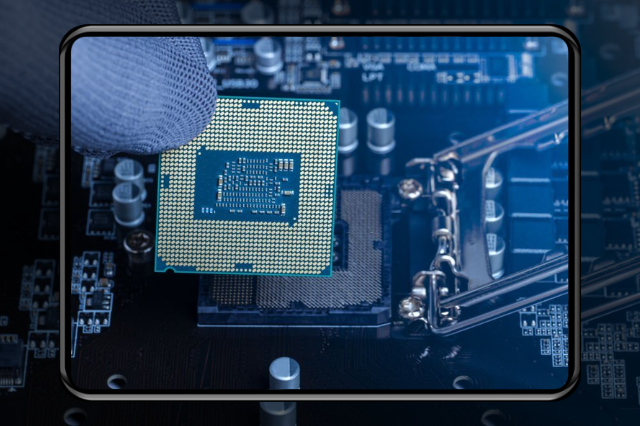
loading...


Everyone’s talking about the dilemma the VLSI industry is facing.
There are endless possibilities in this emerging science of chip design, yet unemployment looms large. It seems like a contradiction, doesn’t it? So much demand, yet so few jobs?
Well, I have a theory.
Yes, the global tech industry is actively hunting for skilled professionals. Even in India, new doors are being constructed for VLSI engineers, especially with the rise in semiconductor missions and investments. But here’s the truth no one says out loud: they don’t just need engineers, they need skilled engineers.
And holding a degree? That just makes you a degree-holder, not job-ready. To crack the pink code of this modern-day Aladdin’s carpet ride, you need to understand how to get a job in the VLSI field. You need to know which roles you’re aiming for, which skills to sharpen, and what mindset and learning approach the industry truly values.
If you're someone eyeing a career in VLSI design, this is where your roadmap begins. And it starts with one solid step: enrolling in a VLSI Design Course that doesn't just teach theory but prepares you for industry expectations.
So what comes after that?
Let’s decode the Top 7 Career Paths After Completing a VLSI Course, and understand which path suits your interests, what skills each role demands, and how to align your learning with real VLSI job opportunities.
Top 7 Career Paths After Completing a VLSI Course
If you love getting into the nitty-gritty of chip layout and care about timing, power, and area, this role is your zone. Physical design engineers convert RTL code into a physical layout using EDA tools.
Required Focus Areas: ASIC flow, floorplanning, STA, CTS, routing
VLSI Job Opportunity Insight: Every chip tape-out needs PD engineers. Master this and job offers won’t be far behind.
If you think logically, love solving puzzles, and enjoy writing in languages like Verilog or VHDL, RTL design is for you. You’ll design the digital building blocks of a chip.
Required Focus Areas: Digital electronics, FSMs, Verilog, simulation, synthesis
How to get a job in VLSI field: Practice writing RTL for real-world projects—this shows recruiters you’re ready.
Are you someone who enjoys catching bugs more than writing the design? This is one of the most in-demand VLSI roles today.
Required Focus Areas: SystemVerilog, UVM, assertion-based verification, testbenches
Career in VLSI Design Tip: Learn to think like a detective—test every edge case.
4. DFT (Design For Test) Engineer
This one's for those who love working on test strategies to make sure chips can be properly tested after fabrication.
Required Focus Areas: Scan insertion, ATPG, MBIST, JTAG
VLSI Design Course Tip: Choose a course that covers testing fundamentals; most don’t.
If you have an artistic mind with technical patience, analog layout design lets you draw the electrical soul of a chip.
Required Focus Areas: MOSFET behaviour, matching, parasitics, layout tools
VLSI Job Opportunity Insight: Few go into analog, it’s a niche, and that makes you highly valuable.
Love coding more than schematic diagrams? Build the tools engineers use!
Required Focus Areas: C++, Python, algorithm optimization, CAD
How to get a job in the VLSI field: Show your love for automation, build scripts, optimize flows.
After a chip is fabricated, someone has to make sure it actually works. That’s where you come in.
Required Focus Areas: Debugging, lab equipment, scripting, data analysis
VLSI Course Bonus: Courses with FPGA projects or hardware validation modules are a plus.
The world of VLSI is vast, exciting, and exploding with potential, but only for those who walk in with clarity, not just a certificate. A VLSI Design Course can give you the foundation, but it’s your choice to go deeper, get hands-on, and truly prepare for VLSI job opportunities.
So, study with intent. Explore each domain. Find where your interest lies. Whether you love design, debug, or development, there’s a space for you. The VLSI industry isn’t just for tech enthusiasts; there’s a world of opportunities beyond the technical roles, too.
If you're curious about non-tech career paths in this dynamic domain, stay connected with us. We’ll keep bringing you insights into the diverse roles the VLSI world has to offer. Keep exploring, because there’s something here for everyone!
 A to Z on India, Japan & the Future of Semiconductor Industry: A New Chapter in Tech Collaboration
A to Z on India, Japan & the Future of Semiconductor Industry: A New Chapter in Tech Collaboration
 RTL Design vs Physical Design: What's the Real Difference?
RTL Design vs Physical Design: What's the Real Difference?
 The Future of the Semiconductor Industry: What Indian Students Should Know
The Future of the Semiconductor Industry: What Indian Students Should Know
 Top 7 Career Paths After Completing a VLSI Course
Top 7 Career Paths After Completing a VLSI Course
 Best Time Management Tips for Students Preparing for VLSI Careers
Best Time Management Tips for Students Preparing for VLSI Careers
 Mastering VLSI Physical Design: A Comprehensive Course Overview
Mastering VLSI Physical Design: A Comprehensive Course Overview
 The Complete FPGA and ASIC Guide
The Complete FPGA and ASIC Guide
 Verilog Essentials: Mastering the Fundamentals of Hardware Description Language
Verilog Essentials: Mastering the Fundamentals of Hardware Description Language
 Unleashing the Power of System Verilog: A Comprehensive Guide for Aspiring Designers
Unleashing the Power of System Verilog: A Comprehensive Guide for Aspiring Designers
 Demystifying VLSI chip Design: Exploring the Core Concepts of VLSI Courses
Demystifying VLSI chip Design: Exploring the Core Concepts of VLSI Courses
 Basics of VLSI - An Ultimate Guide
Basics of VLSI - An Ultimate Guide
 Career Prospects After Completing A VLSI Course
Career Prospects After Completing A VLSI Course
 Top 5 Reasons To Take Up A Professional VLSI Course
Top 5 Reasons To Take Up A Professional VLSI Course
 Mastering VLSI Design: A Comprehensive Guide To Understanding Complex Integrated Circuits
Mastering VLSI Design: A Comprehensive Guide To Understanding Complex Integrated Circuits
 Future-Proof Your Career With A VLSI Course: How Learning About Integrated Circuits Can Boost Your Job Prospects?
Future-Proof Your Career With A VLSI Course: How Learning About Integrated Circuits Can Boost Your Job Prospects?
 System Verilog: An Overview
System Verilog: An Overview
 Introduction to Hardware Description Language (HDL)
Introduction to Hardware Description Language (HDL)
 Unlock The Potential Of VLSI Design With An Integrated VLSI Course Online
Unlock The Potential Of VLSI Design With An Integrated VLSI Course Online
 Universal Verification Methodology:An Efficient Verification Approach
Universal Verification Methodology:An Efficient Verification Approach
 How to Write a Verilog Module for Design and Testbench
How to Write a Verilog Module for Design and Testbench




